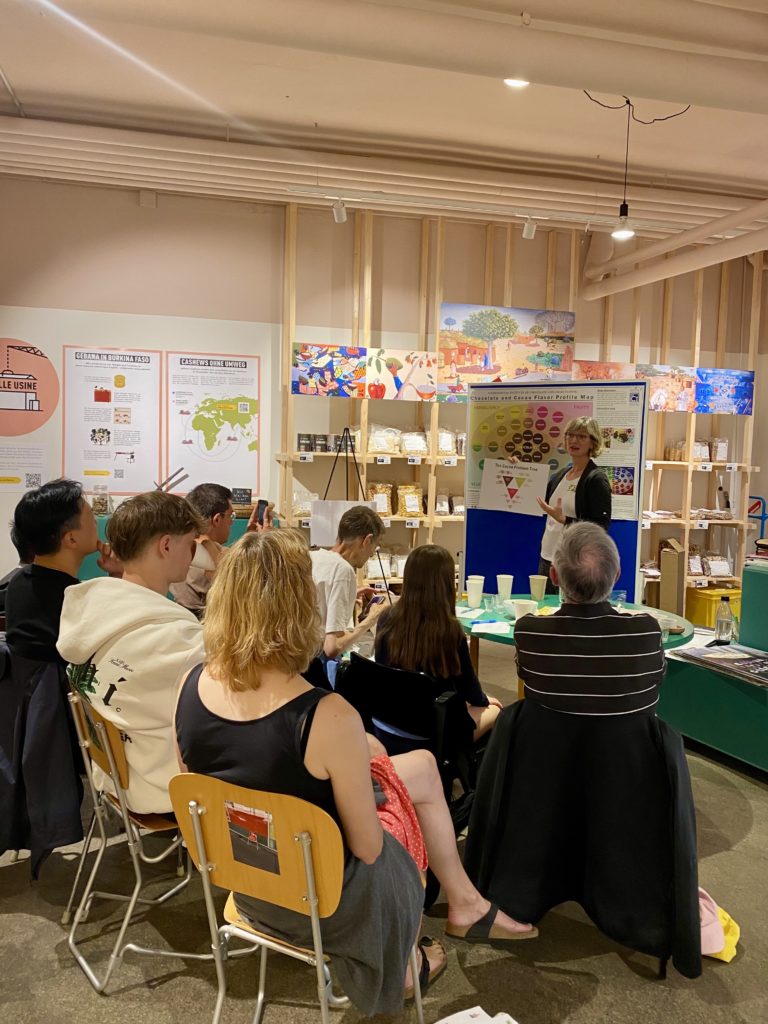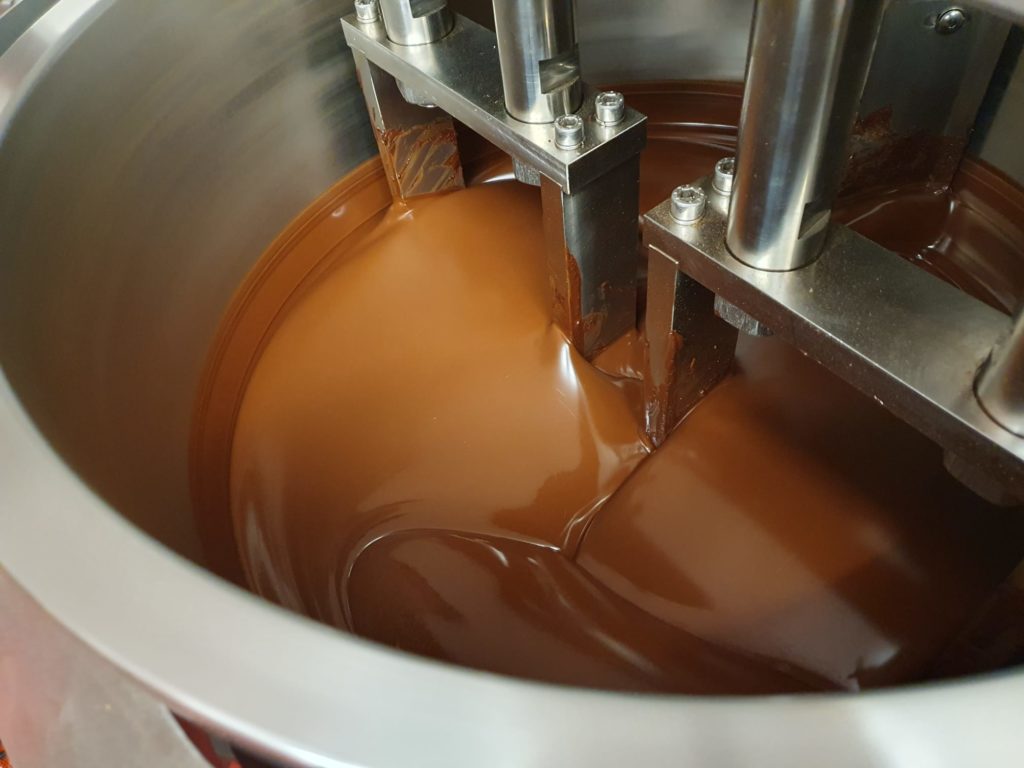Written by Denis Sabardine
I recently had the opportunity to take part in the Ethical Chocolate Tour in Zürich – a wonderful community experience with tastings that impressively showed me what engaged and ethical consumption truly means, and how much impact each of us can have through our everyday purchases.
The tour, organized in partnership with Detours Zürich and the Good Chocolate Hub, vividly illustrates the importance of our consumption – both at a local level by supporting local craftsmanship, and at the sources of our food, where cocoa is grown.
Eating chocolate comes with responsibility when you understand its history, the complex value chain, and the journey from bean to final bar. The tour introduces the many challenges involved: climate change and biodiversity loss, unequal income distribution, market concentration (many small producers, few traders, some large companies, and billions of consumers), human rights issues, and equality concerns. After this tour, you will never purchase or eat chocolate the same way again.
Mass production on a large scale is unsustainable in the long term, but some actors are taking real steps to create alternative business models promoting fairness, responsibility, ethics, and environmental friendliness. This tour is not about guilt, but about raising awareness and showing how to become a more mindful consumer who enjoys chocolate with greater pleasure and care.
Diana from Detours Zürich, as well as Andrea and Evelyn from the Good Chocolate Hub, accompanied the three-hour tour with joy and inspiration.
The tour starts at Gebana’s store, which offers ethically traded products like coffee, nuts, coconut, and of course, chocolate. Gebana works directly with local producers and supports community projects. With the aim of changing the rules of trade, Gebana is politically engaged and maintains direct ties with farmers.

In the store, you receive a historical introduction to cocoa and a “cocoa problem tree” analysis. You learn about its long history and colonial exploitation, how cocoa came to Switzerland and was turned into a “Swiss product” through clever marketing for one thing. Can you imagine how? Furthermore, you learn that farmers receive only about 6% of the sale price of a chocolate bar—far from a living wage—even with fair trade labels, as traders and buyers generally do not share profits fairly. Since many “Big Chocolate” companies are Swiss, this raises questions about our chocolate cravings.
Following this complex overview, comes the chocolate tasting. Using an “aroma wheel,” participants explore different flavor profiles before sampling various bean-to-bar chocolates. And there was one special treat I have never tasted before: cocoa juice – meaning the pulp of surrounding the cocoa beans. Have you?
Next, the tour visits Garçoa, a small chocolate craft business just outside the city (founded in 2016, 7 employees, producing about 200 bars per day). Garçoa focuses on genuine chocolate flavor, producing chocolate in its purest form directly linked to local terroirs and individual farms—using only beans and sugar, without added cocoa butter. Transparency, trust, sustainable community development, and high ethical standards shape the production. During a guided factory tour, every carefully executed step from roasting the beans to designing the packaging is explained. Garçoa exemplifies a bean-to-bar approach and an engaged business model based on resilience and prevention of industry injustices.

The key message of the tour is clear: “less is more and better” — for you as a consumer, for chocolate, and for farmers. It’s a new philosophy that starts small but can have a big impact. This tour truly embodies the Good Chocolate Hub’s mission: to open new paths, show different perspectives, and help clarify complex issues in the chocolate world. The work continues—and I personally look forward to being part of this positive change.
Would you like to join the Ethical Chocolate Tour too? Then sign up and be part of the experience!


